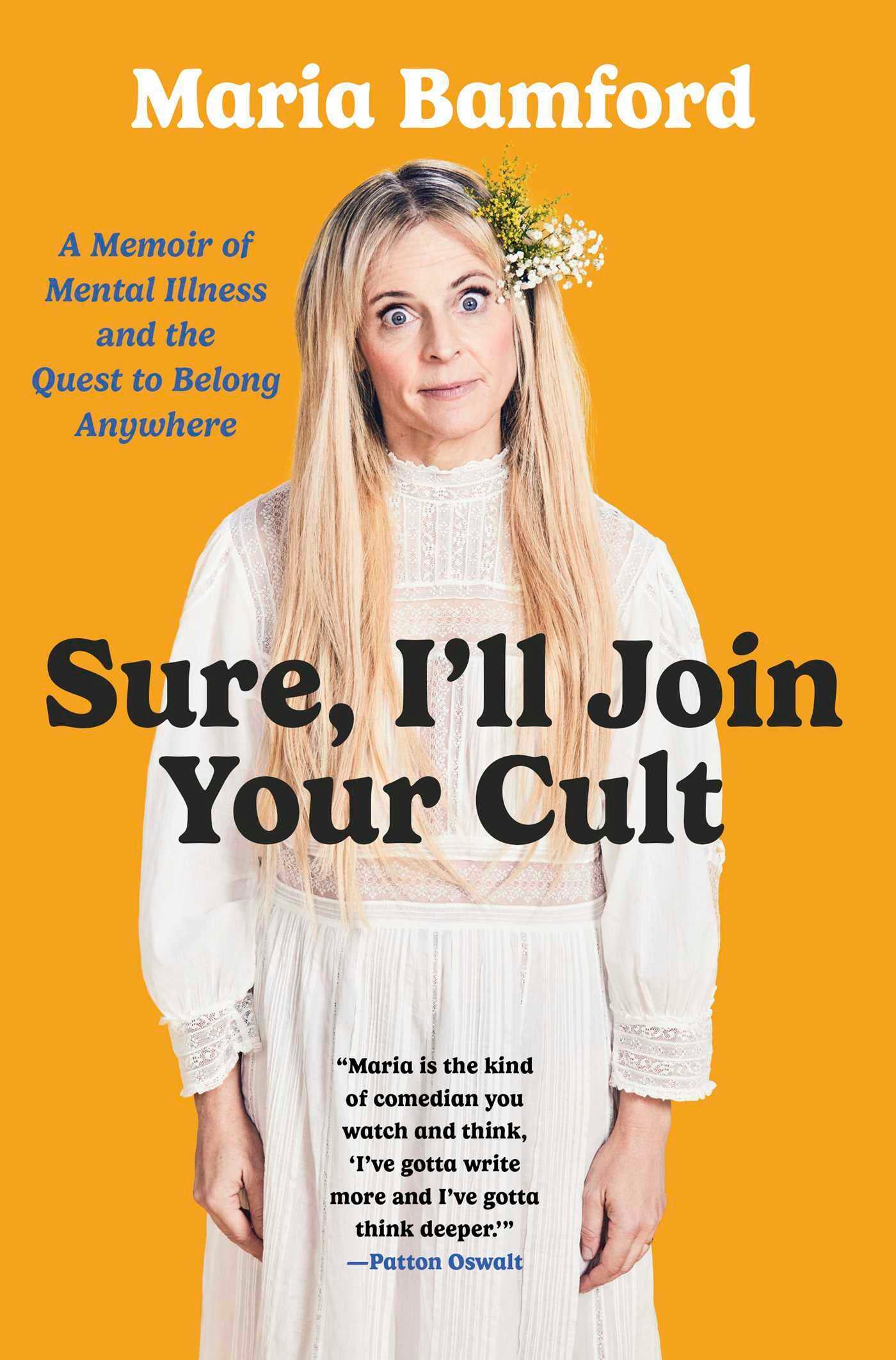Book Review: Comedian Maria Bamford details her mental health issues with compassion and humor
Comedian Maria Bamford details her decades-long journey to address her various mental health issues with compassion and humor in her new memoir, “Sure I'll Join Your Cult.”

Your support helps us to tell the story
From reproductive rights to climate change to Big Tech, The Independent is on the ground when the story is developing. Whether it's investigating the financials of Elon Musk's pro-Trump PAC or producing our latest documentary, 'The A Word', which shines a light on the American women fighting for reproductive rights, we know how important it is to parse out the facts from the messaging.
At such a critical moment in US history, we need reporters on the ground. Your donation allows us to keep sending journalists to speak to both sides of the story.
The Independent is trusted by Americans across the entire political spectrum. And unlike many other quality news outlets, we choose not to lock Americans out of our reporting and analysis with paywalls. We believe quality journalism should be available to everyone, paid for by those who can afford it.
Your support makes all the difference.“Sure I'll Join Your Cult,” by Maria Bamford (Simon & Schuster)
Comedian Maria Bamford has been a comic and actor for more than two decades, her high voice and quirky persona gracing countless stand-up stages and the occasional TV show such as “Arrested Development” and her own “Lady Dynamite.”
Her long journey with mental health serves as the backbone of her comedy and now her memoir, “Sure I'll join Your Cult.” While Bamford hasn't joined any bona fide cults, she describes the different groups she's joined throughout her life — everything from her family to the Suzuki violin method, as well as Overeaters Anonymous, Debtors Anonymous, Sex and Love Addicts Anonymous and how they've helped — or not helped — her along the way.
“I love groups,” she writes. “I love social orders that I can push against while still being held by snug boundaries of membership.”
Bamford's first experience with mental illness came when she was a child in the 1980s, when she began suffering from a form of obsessive compulsive disorder called “intrusive thoughts.” She pictured hurting her loved ones and was paralyzed with fear that she might act on the thoughts, even though she never actually did anything to harm anyone. Meanwhile, she was diagnosed with Bipolar II and OCD and her attempts to find the right medication to address her disorders led to three stays in psychiatric wards.
While none of this may sound funny, Bamford is well versed in joking about her maladies and opens up in the hopes that others might not feel as alone as she was battling her illness. The memoir offers a candid look at Bamford's decades in self-help and support group services and compassionately urges anyone suffering to reach out and get help — anywhere they can find it.